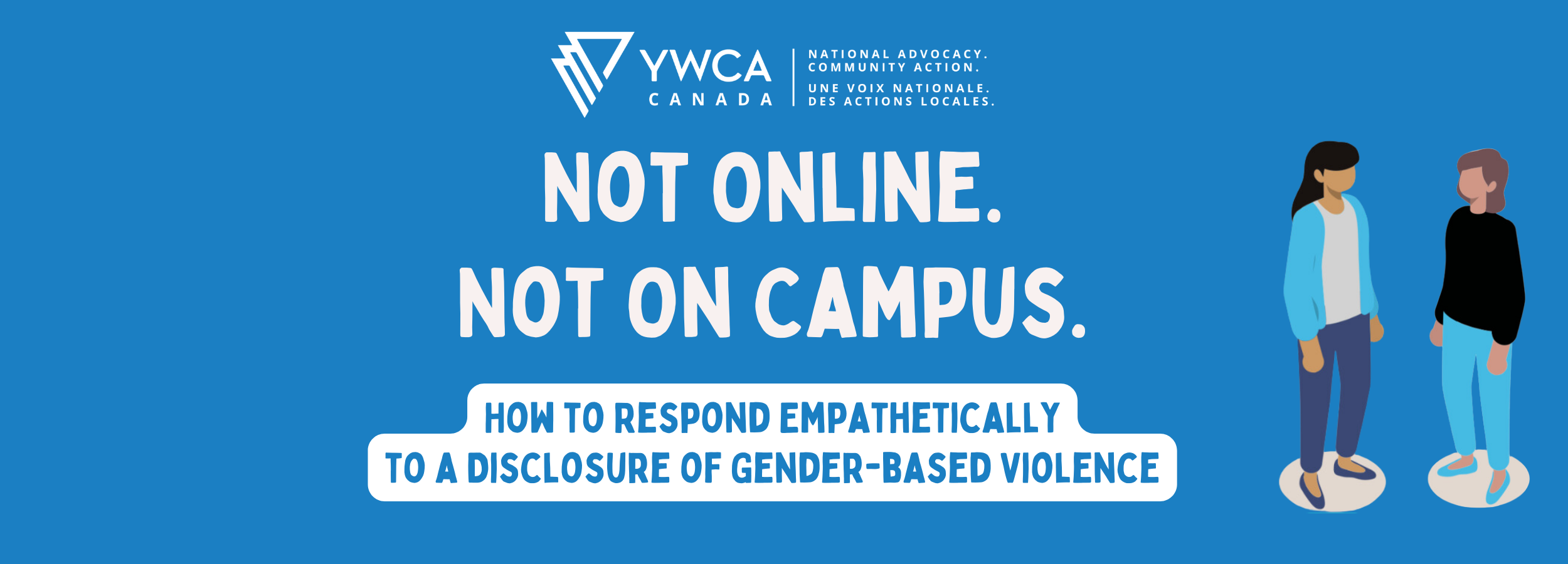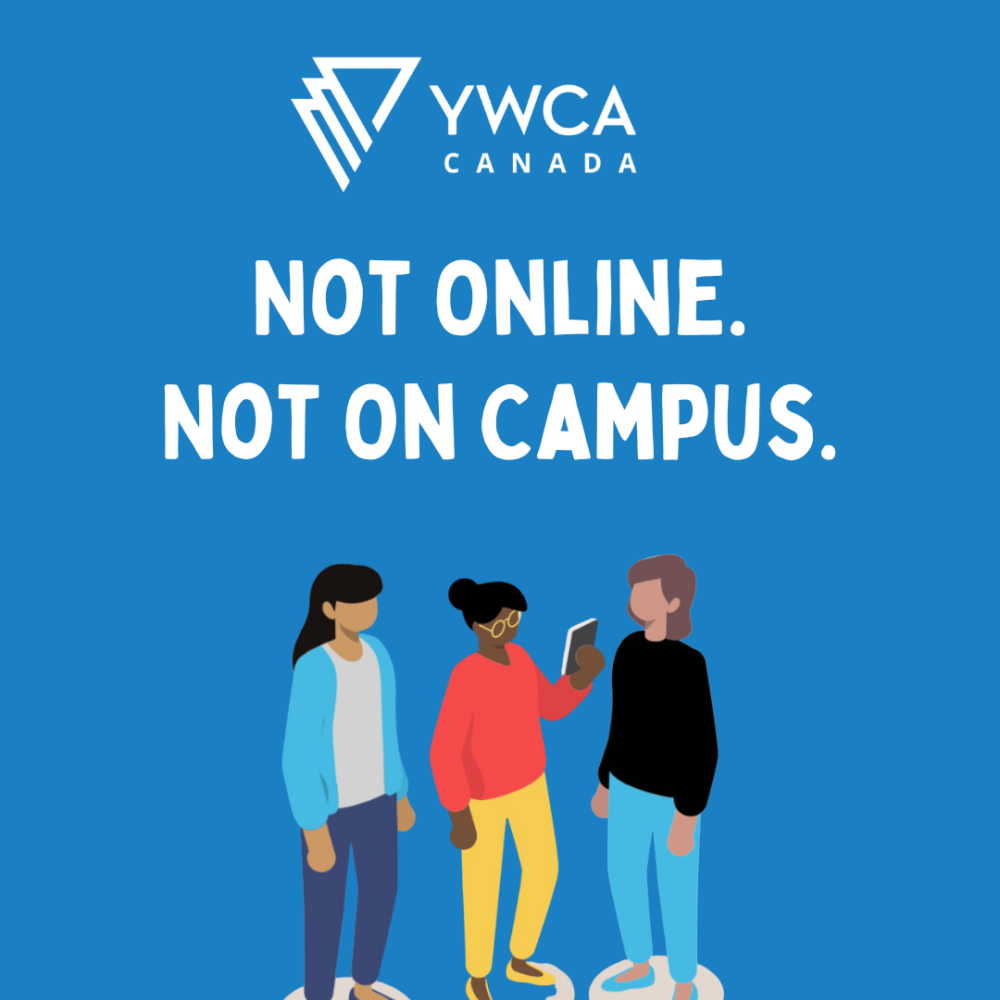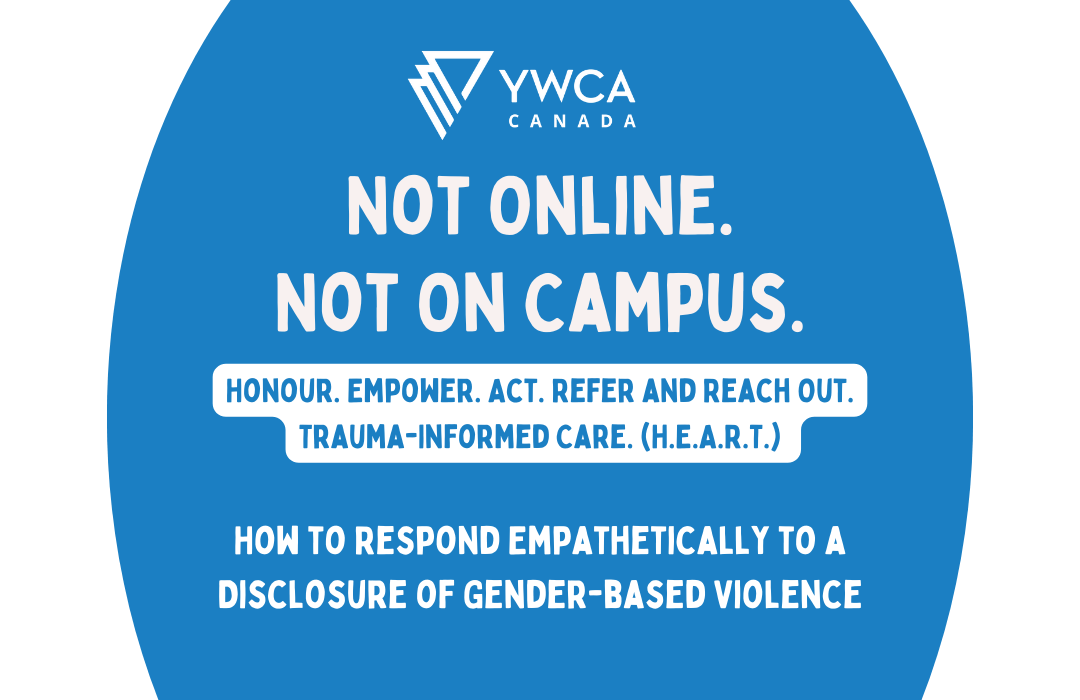

The Not Online. Not on Campus. project extends YWCA’s ongoing work to end gender-based violence and builds on our recommendations from Project Shift, a knowledge-sharing project with the goal of eliminating cyberviolence against young women and girls. Recommendations included creating woman-centered training on how to work with survivors in a way that is supportive and nonjudgmental (i.e., not blaming the victim). YWCA Member Associations (MAs) offer immediate assistance to women fleeing violence, provide counselling and referral services, and deliver violence prevention and intervention programs. Informed by our Member Associations, research, and trends, YWCA Canada develops resources and initiatives to create systemic change and shift the needle forward on ending gender-based violence.
YWCA Canada is a proud partner of McGill University’s IMPACTS project, an initiative to address sexual violence on campuses across Canada and internationally. This work is supported by the Social Sciences and Humanities Research Council of Canada under IMPACTS: Collaborations to Address Sexual Violence on Campus, led by Project Director Shaheen Shariff, Ph.D., James McGill Professor, McGill University. In addition, we would like to acknowledge that this project has been supported by a grant from the Canadian Women’s Foundation and its partners. YWCA Canada also acknowledges funding from the Cedrus Foundation that supported the knowledge mobilization of this work.
Report

In 2020, we completed the project’s first phase, which included a report about sexual violence on campus. With the support of YWCA Hamilton and YWCA Lethbridge and District, YWCA Canada conducted a literature review and research, informed by campus leaders, first responders to sexual violence, and violence prevention workers, to inform a new resource and training for college and university leaders. Informed by the report, YWCA developed training and a tool for campus leaders to better support people who report technology-facilitated sexual violence.
In 2023, YWCA Canada received a grant from the Canadian Women’s Foundation to support additional research on the realities of post-secondary students living in northern and rural communities. Through research, conversations, and group discussions, in partnership with YWCA Thompson, YWCA NWT and YWCA Agviik Nunavut, we connected with youth who shared their experiences accessing support in the community and on campuses. We developed a supplementary report to highlight these unique realities. Read Understanding Experiences of Gender-Based Violence and Barriers to Accessing Services Among Post-Secondary Students in Northern, Rural, and Remote Canadian Communities here.
Tool and Training

Grounded in research and community consultation, YWCA Canada developed resources to expand capacity and support all members of campus communities in responding to disclosures of gender-based violence. These resources were made possible by the time and energy of many who supported this work, including YWCA Canada’s team, YWCA Member Associations who conducted consultations, and all those who reviewed the tool at various stages.
YWCA Canada consulted with youth at colleges, universities, and in community, as well as with other community members and administrative staff. Findings clearly indicated that there are not enough resources available in community or on college/university campuses, specifically on smaller campuses, to support people who have experienced gender-based violence.
Through these complementary resources, we hope to provide staff and administrators with tools and self-care tips to use when approached by someone who has experienced gender-based violence, including sexual violence and tech-facilitated gender-based violence.
This project extends YWCA Canada’s ongoing work to end gender-based violence and responds to the needs of academic institutions across the country that are at varying stages of violence prevention and response work.
Our goal is to empower all members of the campus community to respond effectively and empathetically when someone discloses gender-based violence. Regardless of their level of training or expertise, we aim to create an environment where everyone feels comfortable supporting individuals who have experienced violence with H.E.A.R.T. (Honour. Empower. Act. Refer & Reach Out. Trauma-Informed Care).
Through these resources, you will:
- Advance your understanding of intersectional, anti-oppressive, and trauma-informed approaches to support people.
- Gain skills in providing effective and empathetic responses to disclosures of gender-based violence from a survivor-centered and trauma-informed lens.
- Access a step-by-step guide for helping the person who has disclosed to you navigate their support options.
- Explore your school’s and community’s supports and policies.
- Receive self-care tips and suggestions that enable both people who have experienced violence and those to whom they disclose to recognize and support their own needs and healing.

- Access the Support and Resources document here.
- Access the Province and Territory Policies and Legislations document here.
Updated: April 2024
This tool is meant to be printed as a booklet.
Once you have gone through the training, you can download the following sticker for your office door or desk. This will help students identify staff and administrators who have completed training if they need support or need to disclose information.
You can also access a H.E.A.R.T. one-pager to keep your learnings close and review effective and empathetic responses to disclosures of gender-based violence from a survivor-centered and trauma-informed lens.
It takes everyone to end cycles of harm and gender-based violence. Thank you for your commitment to addressing gender-based violence on our campuses.